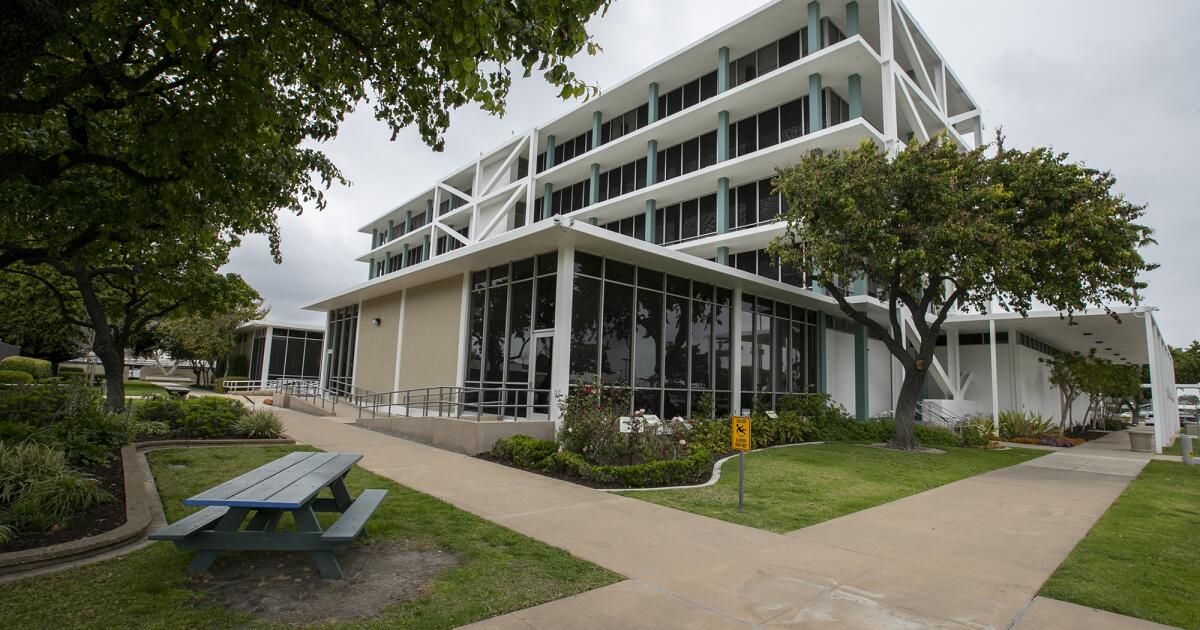Costa Mesa City Council passes affordable housing ordinance, but much work remains
With much consideration of Costa Mesa's historic housing woes, and a bit of horse-trading, officials passed a law imposing affordability requirements on rental projects over 50 units. The Costa Mesa City Council has approved an affordable housing ordinance, a measure that would address the state's affordability crisis without deterring developers. The council approved the language in a 7-0 vote. The ordinance includes a set-aside rate of 11% low or 7% very low-income units for projects with a density of 60 or more units per acre and lower percentages for smaller projects. The discussion included lengthy discussions about the size threshold at which a housing project would trigger the ordinance and what percentage of units should be offered for low- and very low income tenants. However, there is still much still to be discussed. The mayor suggested that $2.5 million could be used to establish an affordable trust for developers, but not immediately established immediately.

Publicado : hace 4 semanas por Sara Cardine en Business
If you want to see the mechanisms by which ideas and good intentions become transmuted into law, look no further than the city of Costa Mesa.
That’s where officials Tuesday engaged in a deep and, at times, personal discourse to establish an inclusionary housing ordinance that would speak to the urgency of a statewide affordability crisis without turning away the developers whose efforts will be needed to produce solutions.
After an hours-long discussion that included a motion, substitute motion and a substitute to the substitute — with multiple revisions and refinements of that final proposition — the Costa Mesa City Council approved language that represents an amalgam of hopes, fears and compromises in a 7-0 vote.
Tuesday’s second reading of the draft regulation continued an equally lengthy Jan. 16 hearing that covered the size threshold at which a housing project would trigger the ordinance and what percentage of units should be offered for low- and very low-income tenants.
That earlier talk ended in a 4-2 vote — with the council hovering around, but not content with, a set-aside rate of 11% low or 7% very low-income units for projects with a density of 60 or more units per acre and lower percentages for smaller projects — and left much still to be discussed.
Officials met again in a Feb. 27 study session to figure out what the city might accept as an in-lieu fee from developers who deemed the inclusion of affordable units infeasible. Consultants provided data on other cities with similar programs and breakdowns for the various affordability scenarios.
Tuesday’s discussion got personal as officials recounted Costa Mesa’s historic problems with pricey housing developments that served only to displace low-income residents and efforts by an earlier council to vacate tenants and children from unsuitable living conditions with no rehousing.
“This has been a long time coming. I’ve heard 8,000 stories in the time I’ve lived in Costa Mesa and in the time I’ve been elected,” said Councilwoman Andrea Marr. “If I don’t try really hard to get this thing across the line I’m not going to be able to live with myself.”
Marr initially proposed a set-aside rate of either 15% low-income or 10% very low-income on rental projects with a density of 60 or more units per acre, striking any affordability on home ownership proposals. That motion went nowhere.
Other council members decried the dearth of housing produced since residents passed Measure Y in 2016, requiring voter approval for certain large-scale projects. Only 182 units have reportedly been built in the past six years, Mayor Pro Tem Jeffrey Harlan said Tuesday, as developers have pursued projects in more buildable cities.
Although voters agreed to effectively undo the mandates of Measure Y through the narrow passage of Measure K in 2022 — freeing up the city to rezone certain commercial and industrial corridors to allow for residential projects with higher densities — the actual rezoning part of the initiative has yet to take place.
Offering a substitute to Marr’s motion, Harlan suggested the council consider allocating $2.5 million to establish an affordable housing trust that would let the city start working with developers who take on projects with low-income tenants in mind.
He further suggested Costa Mesa not apply affordability requirements until the requisite zoning was completed. Given that few builders want to work in Costa Mesa as it stands, he said, imposing a mandate without rezoning would not provide any needed housing.
“Measure Y drove the development community away, and now we’re asking to lay on another requirement without providing any kind of compensatory incentive,” Harlan said. “This is no incentive-based program. It won’t be until we have the rezoning take place.”
City staff estimated it could take the city at least two years to complete the rezoning process, a timeline some felt was too long to wait to apply an affordability mandate.
Mayor John Stephens suggested such requirements could be part of an individual project’s development agreement, and others tried to work out with staff whether an affordable housing ordinance might be phased in as the city completed portions of its rezoning effort.
Councilwoman Arlis Reynolds put forth a second substitute motion that — after several iterations and amendments — retained Harlan’s idea about setting up an affordable housing trust fund but established an immediate requirement that rental projects of 50 or more units earmark either 10% for low-income or 5% for very-low income occupants.
As part of the motion officials will reconvene, possibly in a study session, to review different strategies and resources that would help city staff accelerate the rezoning process and streamline projects that met the affordability mandate. A discussion on setting in-lieu fees will also return at a later date.
“I’m so proud of this group here,” Stephens said after the vote. “If every branch of government throughout the country did business like we just did, we’d live in a different world.”
Temas: Social Issues
